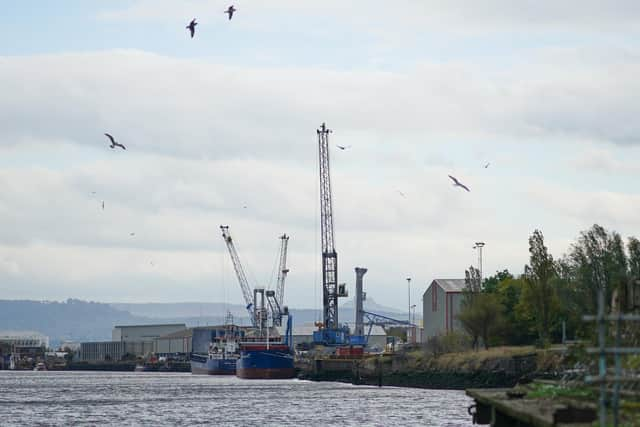Does National Audit Office have powers to investigate Teesside freeport?
In August 2022, Tees Valley Mayor Ben Houchen tweeted that “The National Audit Office have signed Teesworks off with flying colours,” adding that, “they have had access to every document relating to Teesworks. It is now beyond doubt that Teesworks represents open, honest progress on a world class site.”
However, it was revealed this week by the Financial Times that the National Audit Office had not conducted any such review into the finances of the enormous regeneration project on Teesside and had asked Mr Houchen to correct his statements.
Advertisement
Hide AdAdvertisement
Hide AdThe original investigation, as mentioned by Mr Houchen, was as a result of queries raised by Middlesbrough MP, Andy McDonald, who had written to the National Audit Office to ensure there were no financial irregularities. As part of their statutory remit, the NAO reviewed Teesworks’ memorandum of understanding, business case and quarterly monitoring reports in order to ascertain whether central government funding had been spent according to the terms of its granting.
Following the FT’s report on Monday, Lisa Nandy, shadow secretary for Levelling Up, Housing and Communities, wrote to the NAO urging it to investigate Teesworks and the development body chaired by Ben Houchen, the South Tees Development Corporation. In her letter she wrote that an investigation was needed in order to “answer important questions about the transfer of a vital public asset into private ownership.”
In response to this letter the NAO released a statement which said that their remit “does not extend to examining the decisions or actions of the Tees Valley Combined Authority or the South Tees Development Corporation.”
The NAO was formed in 1984, but its roots lie in the Tudor era Auditors of the Imprest, a body set up to ensure money given to officers of the crown were spending it appropriately. These days the NAO continues as a Parliamentary body with two main focuses to its work - whether government money is spent how it is intended, and whether public bodies are achieving value for money from their expenditure.
Advertisement
Hide AdAdvertisement
Hide AdFull auditing of STDC or TVCA, as previously mentioned, does not come under the terms of the NAO’s work. This was previously done by the Audit Commission, whose closure in 2015 by David Cameron’s government left their work to be fulfilled by the private sector.


Mr Houchen backed calls for an investigation from the NAO, adding in a post on Facebook: “I know that this is a waste of time and money". Could it be that he’s aware of the NAO’s statutory limitations?
A full audit is likely to take a long time, with the auditor’s report into TVCA’s 2020-21 accounts only being completed in August 2022, thanks in part to what they described at the time as “significant weaknesses in the arrangements for accounts preparation”.
TVCA has apparently addressed this issue by hiring new staff with extensive experience in both the public and private sector. Meanwhile the NAO has said that it is in discussion with the government and TVCA’s auditors to address the possibility of extending its remit in order to examine events like the share transfers of Teesworks from public to private hands.
Advertisement
Hide AdAdvertisement
Hide AdThere is an instrument that can be used for the NAO to conduct a full investigation of a public body, Section 6(3)(d) of the National Audit Act, which needs consent of the public body in question as well as that of the relevant secretary of state in order to be used. Ben Houchen has said that he welcomes an investigation, whether or not Michael Gove agrees remains to be seen.
Comment Guidelines
National World encourages reader discussion on our stories. User feedback, insights and back-and-forth exchanges add a rich layer of context to reporting. Please review our Community Guidelines before commenting.
